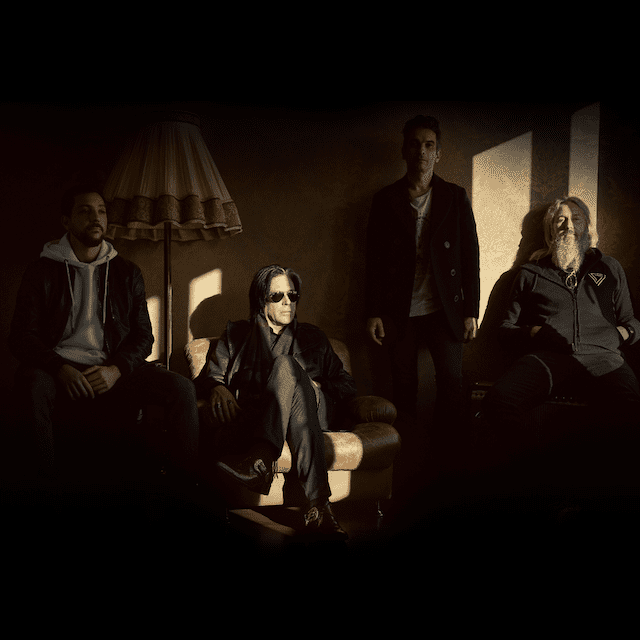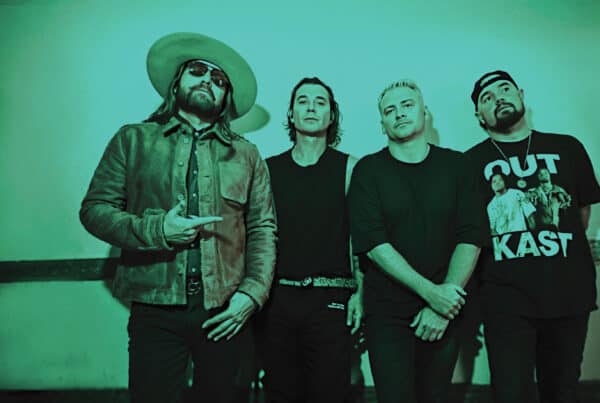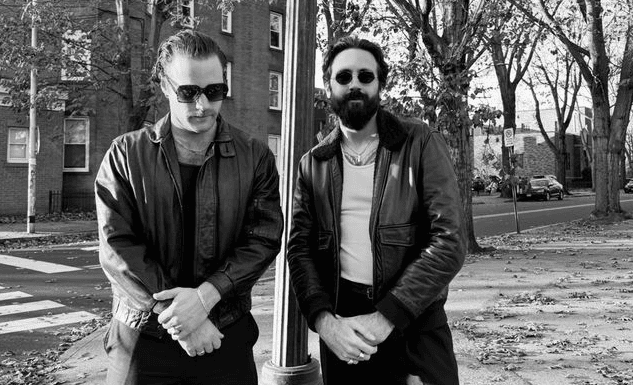This week Dom Smith chats to Tony Hajjar of At the Drive-In fame about family, how he has changed and developed as a person, his inspirations and how is being pushed creatively throughout his many projects.

Hajjar was born in Beirut, Lebanon in 1974 and just a few years later he and his family moved to El Paso, Texas. His early influences included the legendary Ozzy Osbourne’s ‘Blizzard of Oz’ album and Motley Crue’s ‘Shout at the Devil, the latter of which inspired him to take up drums. After graduating college in 1996 with a degree in chemistry/mathematics, he joined At The Drive-In, the band signed a contract after a small gig in LA and then went onto tour for six years releasing many EP’s and albums, with the most successful record being ‘Relationship of Command’ appearing in 2000. Soon after this, he went on to create the successful alt-rock band, Sparta, which also contains ATDI guitarist Jim Ward, and Paul Hinojos. He has even had a hand in scoring video games, with the blockbuster title Splinter Cell: Blacklist in 2013. All of this including his current project Gone is Gone, which is him, Troy Sanders of Mastodon and Troy Van Leeuwen, one of the guitarists for Queens of the Stone Age.
Tony says he has had ambition from the beginning, “I was hungry to prove myself to relatives that thought I was crazy for dropping out of college, and friends that thought I was crazy for leaving a lot of possible careers outside of music.” He’s always wanted to be the one that takes care of others too, whether that be friends or people around him. “I’ve always wanted to be in a band if that makes sense, I want to be in a band, I don’t dream of playing the drums forever, I dream of being a composer, a songwriter, and arranger.”
We ask what his biggest inspirations are, and family seems to be the most important one. “The word family has always been important to me; cause I’ve always been trying to create it.” Tony didn’t grow up with much of a family, his mother passed away when he was at a young age, and he was raised by his brother. He ended up finding solace with his best friends families and is now trying to give his children what he never had.
How is Hajjar being pushed creatively and as a person throughout his various projects? “It’s been really exciting to see everyone just go ‘ok, I’ll do anything then,’ and it’s like ok, yeah exactly that’s what this band should be about, doing anything.” This leads Hajjar to talk about how they made music for Gone is Gone, which is done remotely mainly because of the other band members commitments to other bands. “We were a Covid type band before Covid because we were hardly able to tour because of everyone’s schedules.”
In terms of future plans, ‘Gone is Gone’ can continue to function, but maybe expect a new project from Hajjar in the future after discovering an old batch of songs he found on his iPad. “I’m in the helm, almost complete control per se, the stuff I can tell you is it’s literally a 180 from anything you’ve ever heard from me.” This sounds great, and we can’t wait to hear more down the line, “that’s what I’m really excited, and hopefully you’ll hear more about it in the future.”
Having played in the UK a lot over the years, we ask if Hajjar what his fondest memories are of this country. “I have a million great feelings and vibes from the UK, I mean you know, when a band breaks in the UK, you feel like you’re on top of the world.” He got to experience his first NME, and Kerrang covers as well, along with a sold-out show in London. “It’s like I’m living that part of history that bands like Zeppelin, and The Who and many bands after that experienced.”
As a closing question we ask what film soundtrack he would put the music of Gone is Gone into, “If there was a pipe dream I would rip out the score from Blade Runner or Dune and do Gone is Gone.” Having written and performed music for trailers and video games, this seems like a natural fit (make it happen, Ridley Scott!).
Interview: Dom Smith / Words: Brett Herlingshaw
Listen to the full audio chat below…






